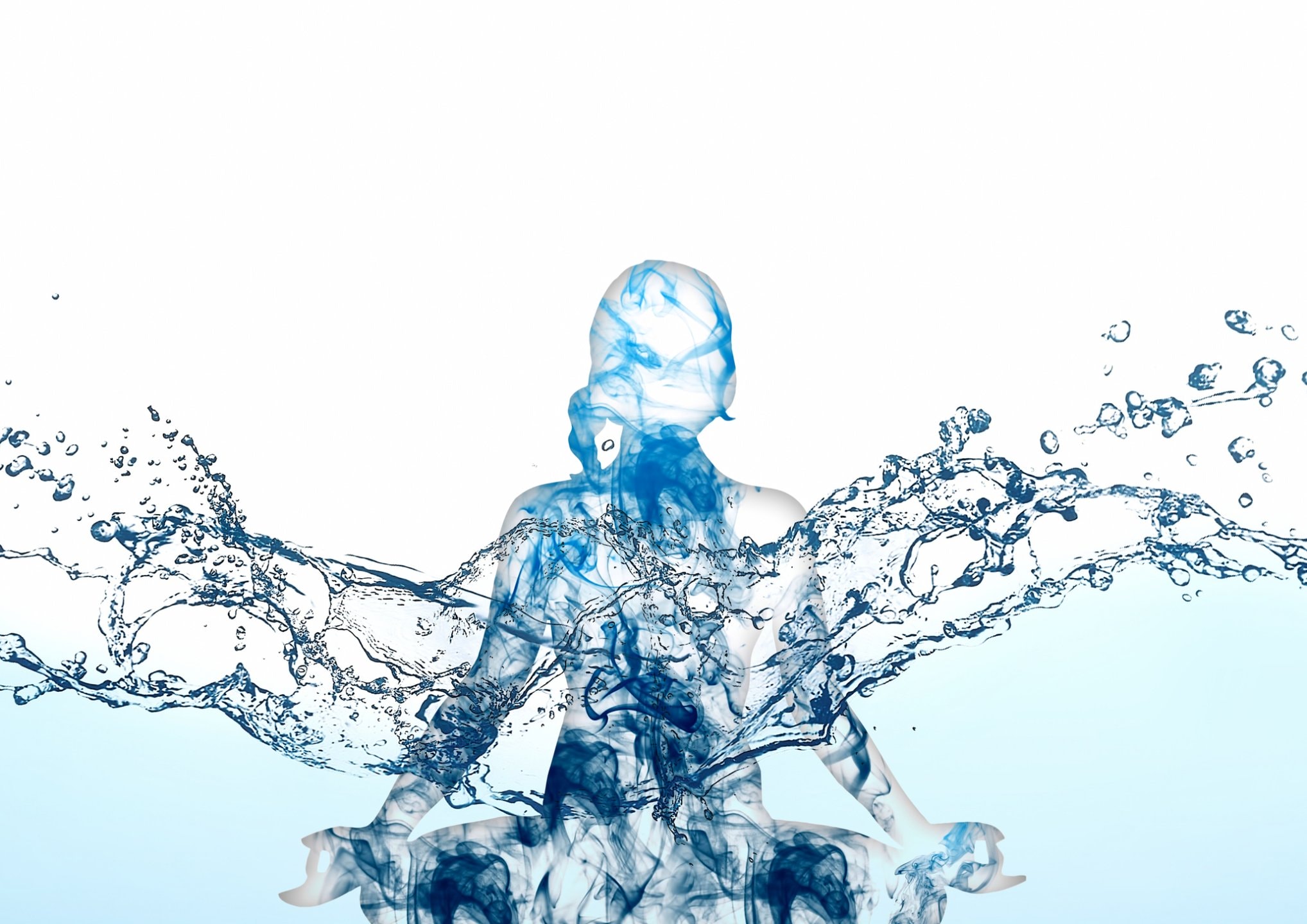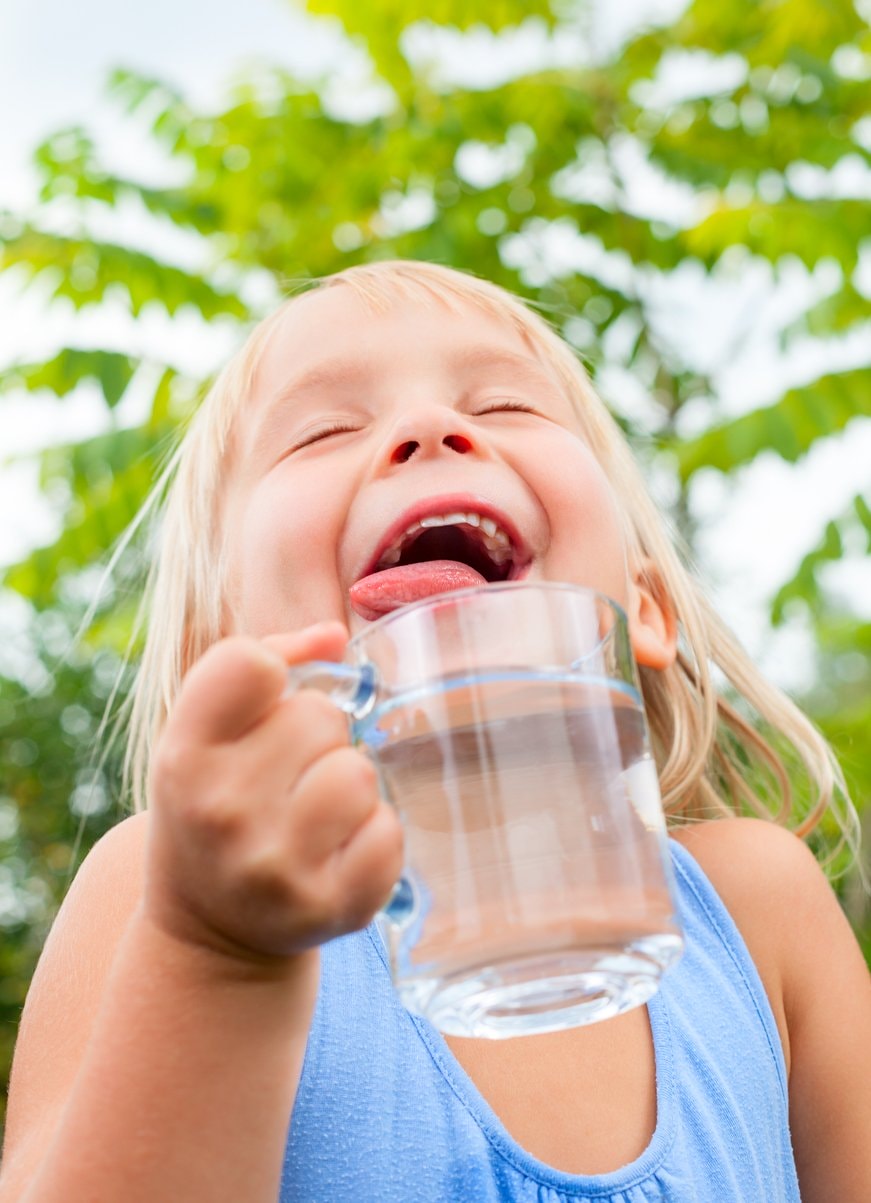Percentage of water in the human body: Why it is important to maintain optimal hydration
 More than 95% of all molecules in the human body are water, that is amazing considering the vital role water plays in all life functions. This life-giving fluid is responsible for all biological processes, from proper organ function, nutrient transport to body temperature regulation. Yet we often underestimate the importance of hydration. So why should we pay attention to water? Let's take a closer look.
More than 95% of all molecules in the human body are water, that is amazing considering the vital role water plays in all life functions. This life-giving fluid is responsible for all biological processes, from proper organ function, nutrient transport to body temperature regulation. Yet we often underestimate the importance of hydration. So why should we pay attention to water? Let's take a closer look.
Why is the percentage of water in the body important?
 Water is part of all the cells in our body and its role is absolutely crucial:
Water is part of all the cells in our body and its role is absolutely crucial:
- Digestion and metabolism: Enough water in the body helps proper digestion, allows food to dissolve, nutrients to be absorbed and ensures proper functioning of the metabolism.
- Detoxification of the body: Enough water in the body ensures that the liver and kidneys can function properly, thus eliminating toxins and removing waste substances from the body.
- Strengthens immunity: The function of our immune system is closely linked to the health of the gut and its microbiome. Even the good bacteria in the gut need plenty of fluids, and water helps the gut to cleanse and regenerate. Drinking water can help to detoxify the body and prevent a number of infectious diseases.
- Body temperature regulation: An adequate level of water in the body supports sweating and cools the body down. Without sufficient hydration, the body cannot cool itself effectively, that can lead to overheating.
- Maintaining vitality and fitness: An adequate level of water in the body increases physical fitness, performance and strength. It boosts energy levels and promotes a positive mood.
- Improves memory and concentration: Fluid intake also affects our nervous system. It has been shown that with a loss of as little as 1.59 per cent of water in the body, the people studied did not perform as well at work and developed symptoms of exhaustion and fatigue.
- It helps against headaches and migraines: Research by British scientists has shown that water intake increased by 1.5 litres a day significantly reduced the duration of headaches and migraines. So if you often get headaches, simply try drinking.
- Promotes weight loss: By sufficiently hydrating the cells, we promote their activity, that affects our metabolism. However, if we do not hydrate the cells enough, it puts strain on them. To save energy, they automatically switch to "power saving" mode and work less. As an extra energy reserve, they begin to store fat in the body.
- Rejuvenates the skin: Soft, supple and radiant skin without wrinkles and other signs of ageing is every woman's dream. Some research has even found that sufficient fluid intake can also prevent premature ageing.
What affects the amount of water in the body?
The amount of water in the human body can vary according to the following factors:
- Age: With age, the water content of the body decreases. For example, newborns have up to 75% water, while the elderly may only have around 50%.
- Gender: Men generally have a higher proportion of water in the body than women, that is due to a higher proportion of muscle mass.
- Body mass composition: People with a higher percentage of body fat tend to have a lower water content because adipose tissue contains less water than muscle tissue.
What happens when hydration is inadequate?
Insufficient water intake can have serious consequences, here are just a few examples of many:
- Dehydration: Loss of as little as 1-2% of body weight due to dehydration can lead to a decline in physical and mental performance.
- Headaches: Frequent headaches can result from dehydration as the brain reacts to a lack of fluid.
- Fatigue and slowed metabolism: Insufficient water intake can slow down metabolism, that can result in a decrease in energy and performance.
- Hair and skin: Lack of water in the body will also negatively affect the quality of hair and skin.
Interesting facts about water in the body
Every organ in the human body contains a certain percentage of water, that varies according to the individual metabolic processes of that organ. Below are some examples of many:
- Brain and water: The brain is composed of approximately 75% water. Insufficient hydration can significantly affect our ability to concentrate and make decisions.
- Bones, joints and water: Although few people realise it, our bones also contain water - approximately 22%, while joints contain up to 83% water, that is crucial for the joints to function properly. Most joint pain is the result of chronic dehydration of the body.
- Lungs: The lungs are mostly made up of water - up to 80%. Its deficiency is manifested by a very dry to irritating cough, inflammation and infections of the lungs...
How to hydrate properly
- Drink regularly: Don't let thirst be the main indicator for drinking. Often the feeling of thirst comes when the body is already slightly dehydrated.
- Observe the colour of urine: If your urine is dark, this is a sign that you should increase your water intake.
- Not just water: You can also replenish hydration through water-rich foods such as watermelon, cucumber or salad.
- Watch out for other drinks: Sweetened drinks, alcoholic beverages, coffee or black tea are all drinks that do not contribute to hydration, but usually dehydrate.
Optimal daily water intake
Every person is different and needs a different water intake depending on weight, age, gender and physical activity. However, the general recommendation is to drink at least 2 litres of water a day. However, water intake needs to be increased during higher physical activity or hot weather. Showering or bathing in good quality water also contributes to the overall hydration of the body.
Správná hydratace je jeden z předpokladů zdraví Proper hydration is one of the prerequisites for health
Optimal hydration is crucial for our health and well-being. Water not only supports the proper functioning of our body, but also improves our mood, energy and performance. Do not forget to drink regularly and pay attention to how your body feels, as even mild dehydration can have unpleasant consequences. Water is a fundamental pillar of healthy living - and although it is readily available, we often underestimate it.
And the rule still holds true that the better the quality of the water we drink, the better the quality of life we live...
